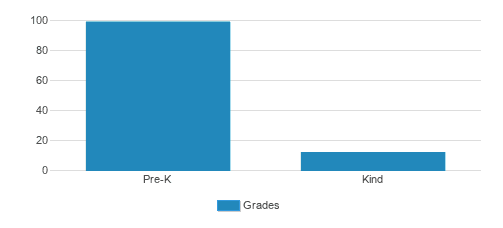Fairbanks Montessori School is a preschool and kindergarten that serves children ages 3-6.
Our mission is to give each child a chance to maximize his or her own potential.
Through self-directed activities in a climate of mutual trust and respect, we provide children with an environment that stimulates social, emotional, physical and cognitive growth.
Our goal is that each child leaves our school with a strong sense of self-worth, an abiding love of learning, a respect for themselves and others, and a healthy independence of action and thought.
Quick Stats (2025)
- School Type: Montessori School
- Grades: Prekindergarten-Kindergarten
- Enrollment: 94 students
- Acceptance rate: 99%
- Average class size: 20 students
- Application Deadline: None / Rolling
- Source: National Center for Education Statistics (NCES)
School Overview
School Type
Religious Affiliation
Grades Offered
Grades Prekindergarten-Kindergarten
Year Founded
1965
Summer School Offered
Yes
Student Body
Total Students
94 students
Student Body Type
Co-ed
% Students of Color
17%
State avg.: 23%
Students by Grade

Academics and Faculty
Total Classroom Teachers
11 teachers
Student : Teacher Ratio
9:1
National avg.: 13:1
Average Class Size
20 students
Classroom Dress Code
Casual
Tuition and Acceptance Rate
Admission Deadline
None / Rolling
Tuition Notes
Tuition varies according to program chosen (i.e. full days, half days, morning, afternoon, before school care, after school care, etc.)
Acceptance Rate
99%
National avg.: 85%
Admissions Director
Sarah Robinson
Admissions Associate
Karri VanDeventer
School Notes
- True to the Montessori philosophy, FMS classes are multi-aged and focus on individualized learning at the child's pace. As a result, many children are academically ahead of other children their age when they leave FMS simply because they have been given unique opportunities to discover and learn concepts at a faster pace than theey would learn in a group. We are a fully licensed day care facility through the state of Alaska which allows families eligible for day care assistance to choose FMS as their preferred pre-school. Our licensure also ensures that FMS meets all the state requirements for a licensed facility which means parents can rest assured their children are well taken care of and getting a quality Montessori education. Our goal is to "Make the world a better place, one student at a time!"
Source: National Center for Education Statistics (NCES)
Frequently Asked Questions
What is the acceptance rate of Fairbanks Montessori Association?
The acceptance rate of Fairbanks Montessori Association is 99%, which is higher than the national average of 94%.
When is the application deadline for Fairbanks Montessori Association?
The application deadline for Fairbanks Montessori Association is rolling (applications are reviewed as they are received year-round).
School Reviews
Endorse Fairbanks Montessori Association. Endorsements should be a few sentences in length. Please include any comments on:
- Quality of academic programs, teachers, and facilities
- Availability of music, art, sports and other extracurricular activities
- Academic or athletic awards
Recent Articles

A Parent's Guide To Understanding High School Teaching Methods
This comprehensive guide helps parents navigate the various teaching methods used in today's high school classrooms. By understanding these approaches, you'll be better equipped to support your teen's learning journey, communicate effectively with teachers, and create a complementary learning environment at home.

February 08, 2025
Social Emotional Learning: Education's Hidden SymphonyA musician's perspective on Social Emotional Learning reveals how this educational framework orchestrates success through five essential emotional competencies.

January 24, 2025
A Roadmap For Starting A Private SchoolUse this roadmap as a set of talking points with your trusted mentors and professionals to start the private school of your dreams. You're not alone. Over the years, hundreds of folks like you have had the same dream. From Quintilian to Maria Montessori to Lucy Madeira Wing, visionary educators have established schools to teach according to their beliefs and methodologies.














